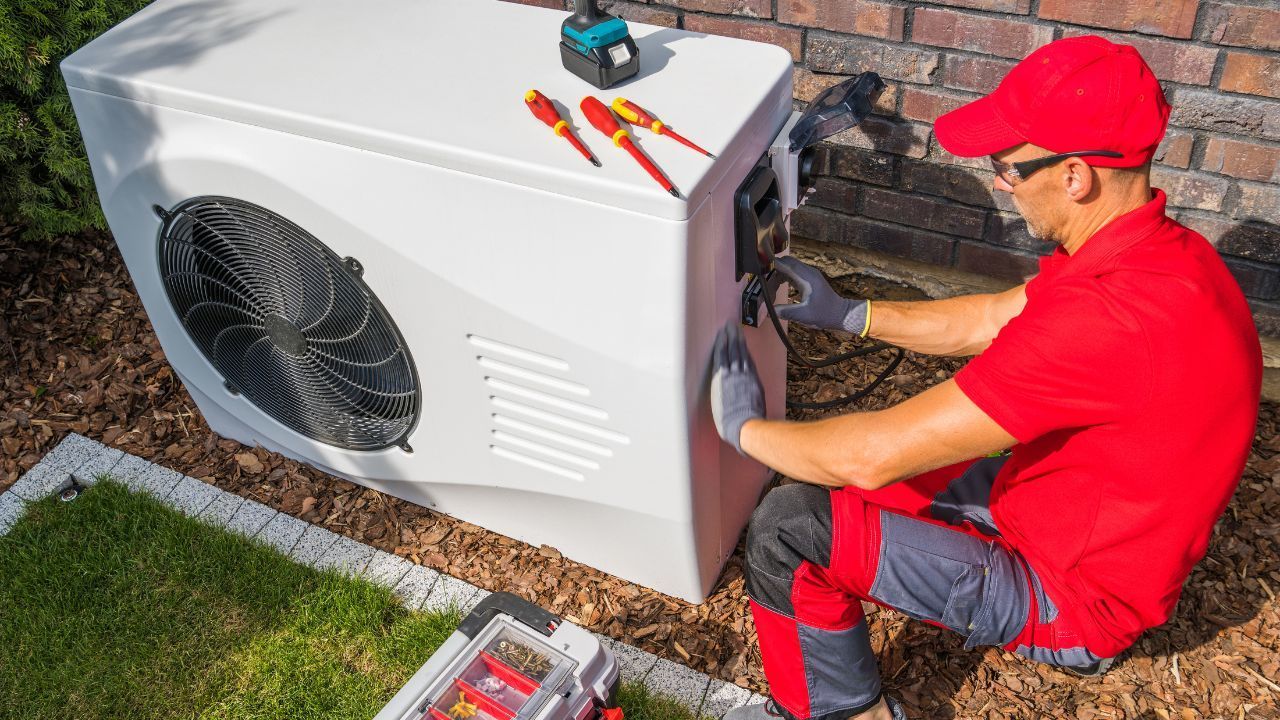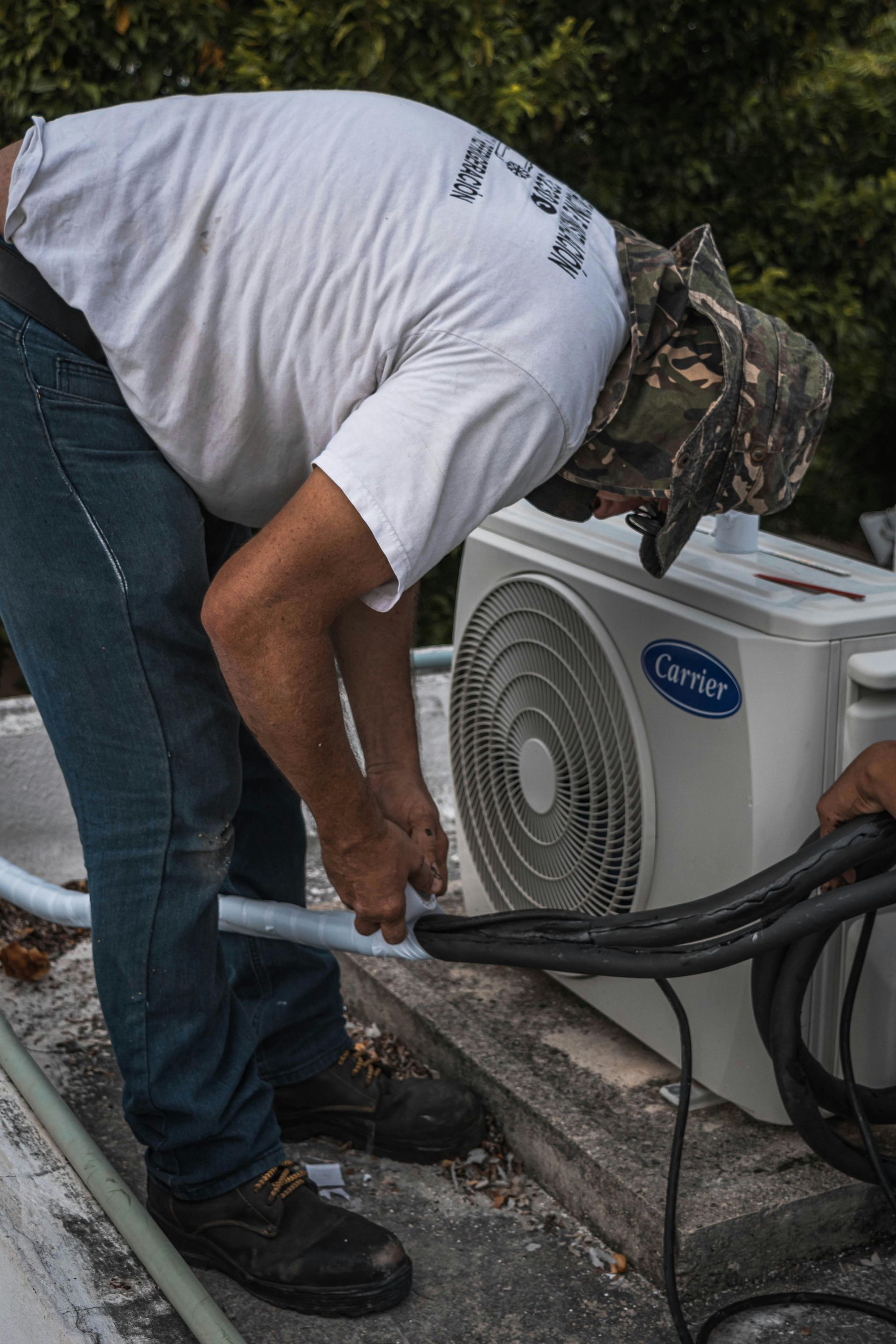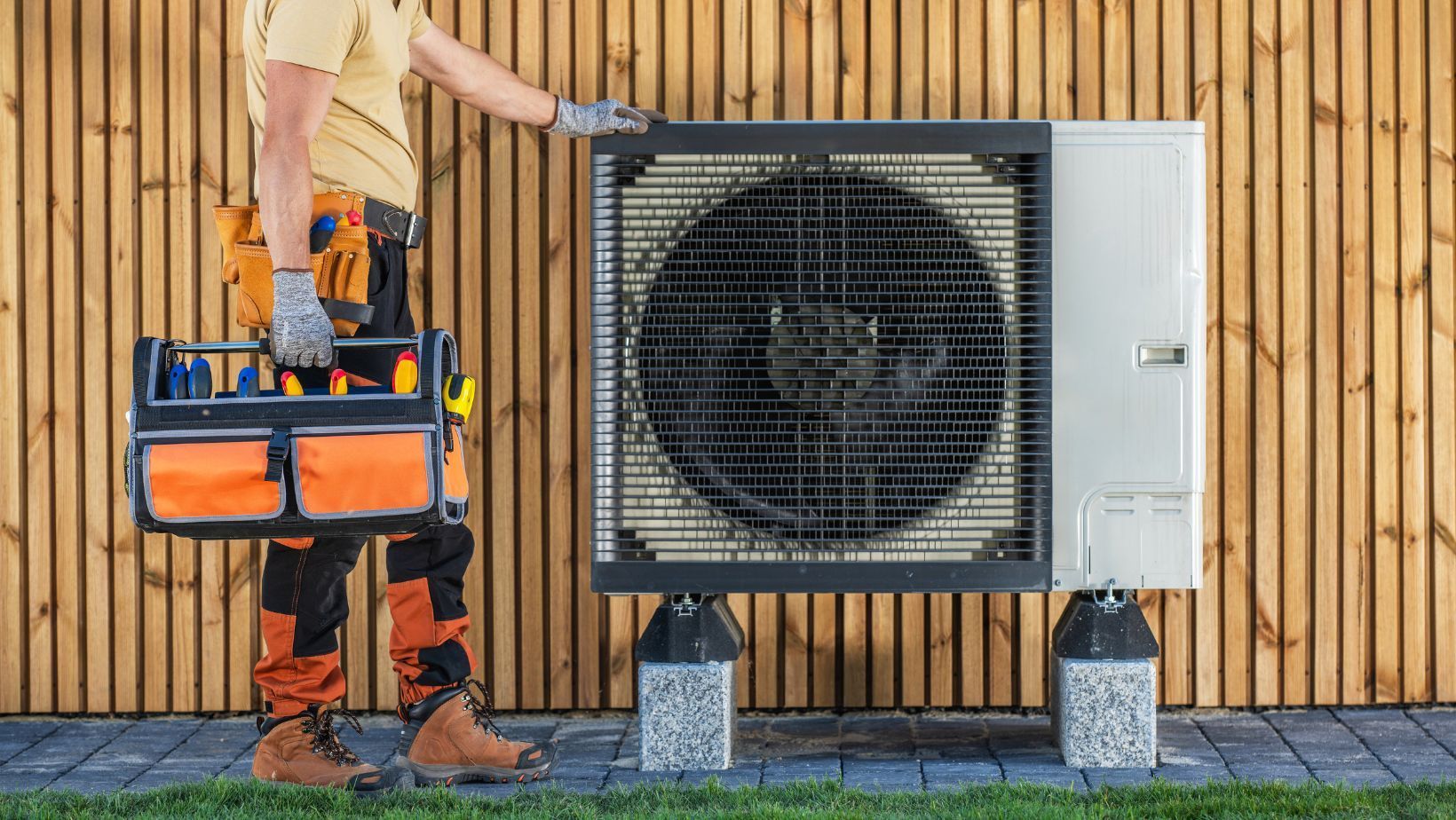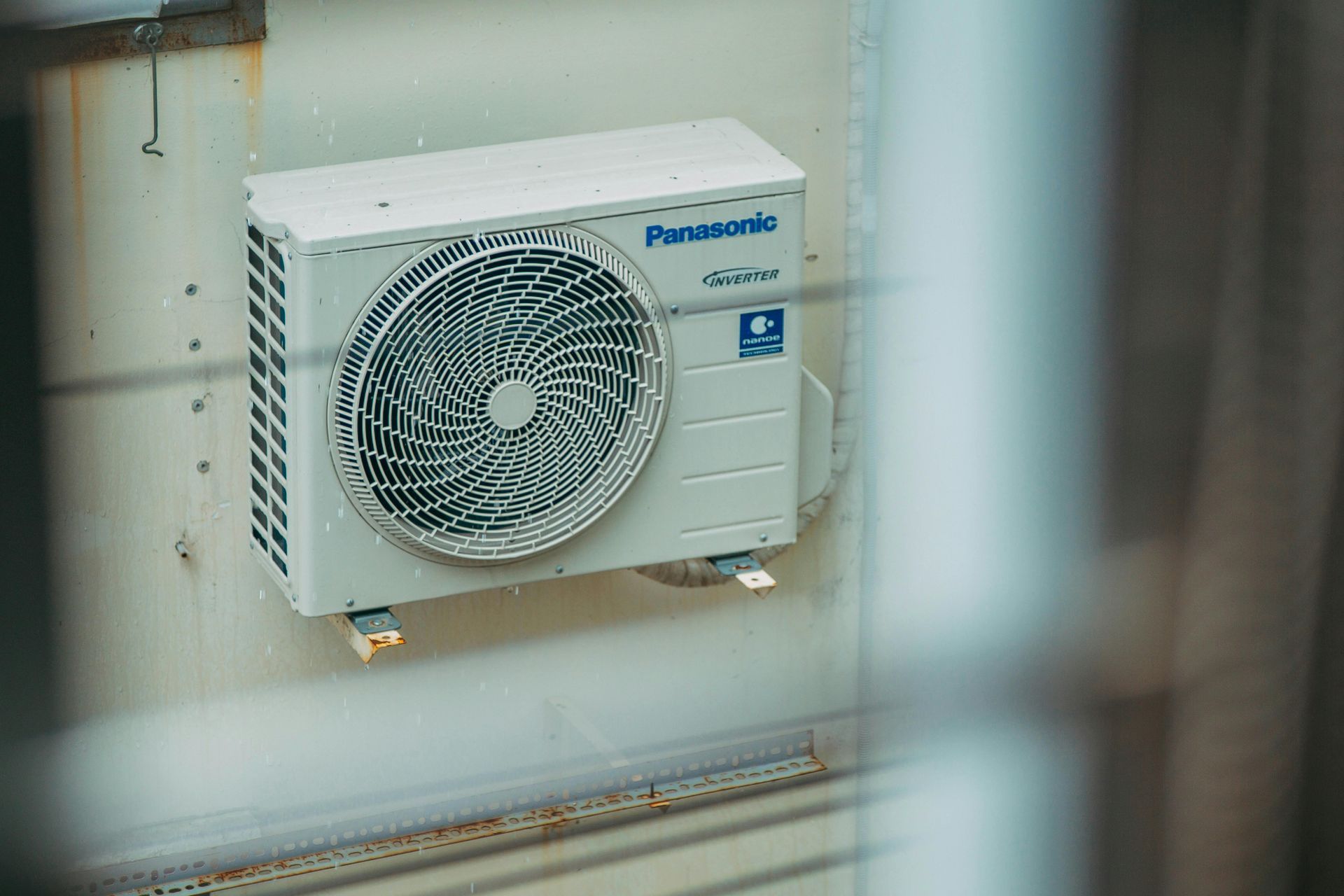How Residential HVAC Systems Work and Why It Matters in London, Ontario

The average homeowner adjusts their thermostat dozens of times a year. Whether it's to escape a humid summer day or warm up on a snowy night, your comfort depends on one thing: your HVAC system.
Still, very few people actually know how residential work. In a climate like London’s, where systems are constantly being pushed to perform, knowing what powers your indoor climate control isn’t just helpful—it’s necessary. This post will give you a clear explanation of how your system works, why seasonal demands matter, and when to call in a professional to keep things running smoothly.
.
Key Takeaways
- HVAC stands for Heating, Ventilation, and Air Conditioning.
- The system works by heating, cooling, and circulating air through your home.
- Understanding how residential HVAC systems work helps reduce energy bills and prolong equipment life.
- Climate conditions in London, ON require durable, well-maintained systems.
- Carver Sheet Metal offers expert HVAC service and advice in the London area.
Overview
In London, Ontario—where the winters are cold, the summers are humid, and the seasons change fast—your HVAC system is essential. But most homeowners still ask the big question: How residential HVAC systems work, and why does that matter? This blog unpacks the full picture of what’s happening behind your vents, what it means for your home and wallet, and why understanding your system’s function helps you make smarter home comfort decisions.
What Does HVAC Stand For?
HVAC stands for Heating, Ventilation, and Air Conditioning. These three functions are provided by different—but connected—components:
- Heating: Usually done with a furnace or heat pump.
- Ventilation: Circulates air and removes indoor pollutants.
- Air Conditioning: Uses refrigerant to cool and dehumidify indoor air.
All three work together to keep indoor temperatures and air quality stable, despite outdoor fluctuations.
.
How Residential HVAC Systems Work
At its core, an HVAC system regulates indoor climate through the movement and conditioning of air. Here’s a breakdown:
1. Thermostat Control
You set your desired temperature using the thermostat. When your home’s air gets too warm or cold, the thermostat signals the system to activate.
2. Heating Process
In colder months:
- A gas furnace ignites and heats a metal heat exchanger.
- Air is drawn into the furnace by a blower motor, heated, and then pushed into the duct system.
- Warm air travels through vents and heats each room.
3. Cooling Process
In summer:
- Warm indoor air is pulled into return ducts.
- This air passes over an evaporator coil filled with cold refrigerant.
- Heat is absorbed and carried outdoors by the refrigerant, while cool air is blown back into your home.
4. Ventilation and Air Circulation
Throughout the year:
- The system pulls stale air back into return vents.
- Fresh air is introduced via intake systems or opened windows (if equipped).
- Filters clean the air before recirculating.
This is the full cycle of how residential HVAC systems work—from control to distribution to return.
.
Why It Matters in London, Ontario
London experiences dramatic seasonal changes. Your HVAC system has to:
- Warm your home through long winters (with temperatures dipping below -15°C)
- Cool it through humid summers (frequently over 30°C)
- Manage indoor air quality year-round
These conditions make London homes especially dependent on well-functioning HVAC systems.
Neglecting system care can lead to:
- Frozen coils
- Overheated furnaces
- High humidity or dry air
- Poor indoor air quality
- Expensive breakdowns
Efficiency and Cost Considerations
Understanding how your HVAC system functions leads to better energy efficiency. That translates to real savings.
Tips to lower HVAC-related costs:
- Change air filters every 1–3 months
- Install a smart thermostat
- Seal and insulate ducts
- Schedule professional inspections twice a year
Even a small airflow blockage or outdated component can force your system to work harder—and cost more.
Seasonal Challenges in London’s Climate
In London, HVAC systems face these seasonal pressures:
- Winter: Heavy furnace usage, risk of frozen pipes, increased dry air.
- Spring: Allergens surge, humidity levels rise.
- Summer: AC runs continuously; humidity control becomes critical.
- Fall: Transition period—ideal time for inspections and repairs.
Each season brings its own demands, which makes pre-season maintenance vital.
.
The Hidden Role of Air Filters
Often overlooked, the air filter plays a huge role in system performance:
- Captures dust, allergens, and debris
- Protects blower motors and coils
- Maintains healthy airflow
A clogged filter is one of the top reasons HVAC systems lose efficiency.
Maintenance and Inspection Tips
Seasonal inspections help extend system lifespan and catch issues early. Professionals look at:
- Refrigerant levels
- Electrical connections
- Motor performance
- Filter condition
- Thermostat accuracy
Trying to manage these things on your own can lead to missed warning signs. And when your HVAC fails, the fix is usually far more expensive than the prevention.
Don’t DIY—Call a Professional
Modern HVAC systems include electrical, gas, and refrigerant components. They’re not DIY-friendly.
Homeowners attempting repairs risk:
- Gas leaks
- Electrical shorts
- Damaged equipment
- Voiding their system warranty
Knowing how residential HVAC systems work means knowing your limits—and when to call a pro.
That’s where Carver Sheet Metal comes in. Based in London, Ontario, we know the demands local homes face. Our technicians are trained to work on all HVAC models and setups.
📍 Address: 1245 Sunningdale Road E, London, ON
📞 Phone: (519) 555-3821
From new installations to pre-season tune-ups, Carver Sheet Metal is trusted for HVAC expertise that lasts. If you're unsure how residential HVAC systems work, or if your system is performing properly, we’re here to help.
.
FAQs
Q: How long should a residential HVAC system last?
A: With routine maintenance, 15–20 years.
Q: Is it worth upgrading to a smart thermostat?
A: Yes. It helps regulate temperatures efficiently and saves on energy bills.
Q: What are signs something’s wrong with my HVAC system?
A: Uneven temps, strange noises, short cycling, or rising utility bills.
Q: Can I just clean the filter instead of replacing it?
A: Some filters are reusable, but most are disposable and should be replaced.
Q: How often should my HVAC be serviced?
A: At least once a year—ideally twice (spring and fall).
Conclusion
Your HVAC system isn’t something to overlook. It’s one of the most critical systems in your home, especially in a city like London, Ontario, where temperature and humidity are constantly shifting.
By understanding how residential HVAC systems work, you can make smarter decisions, avoid costly breakdowns, and breathe easier all year long.










